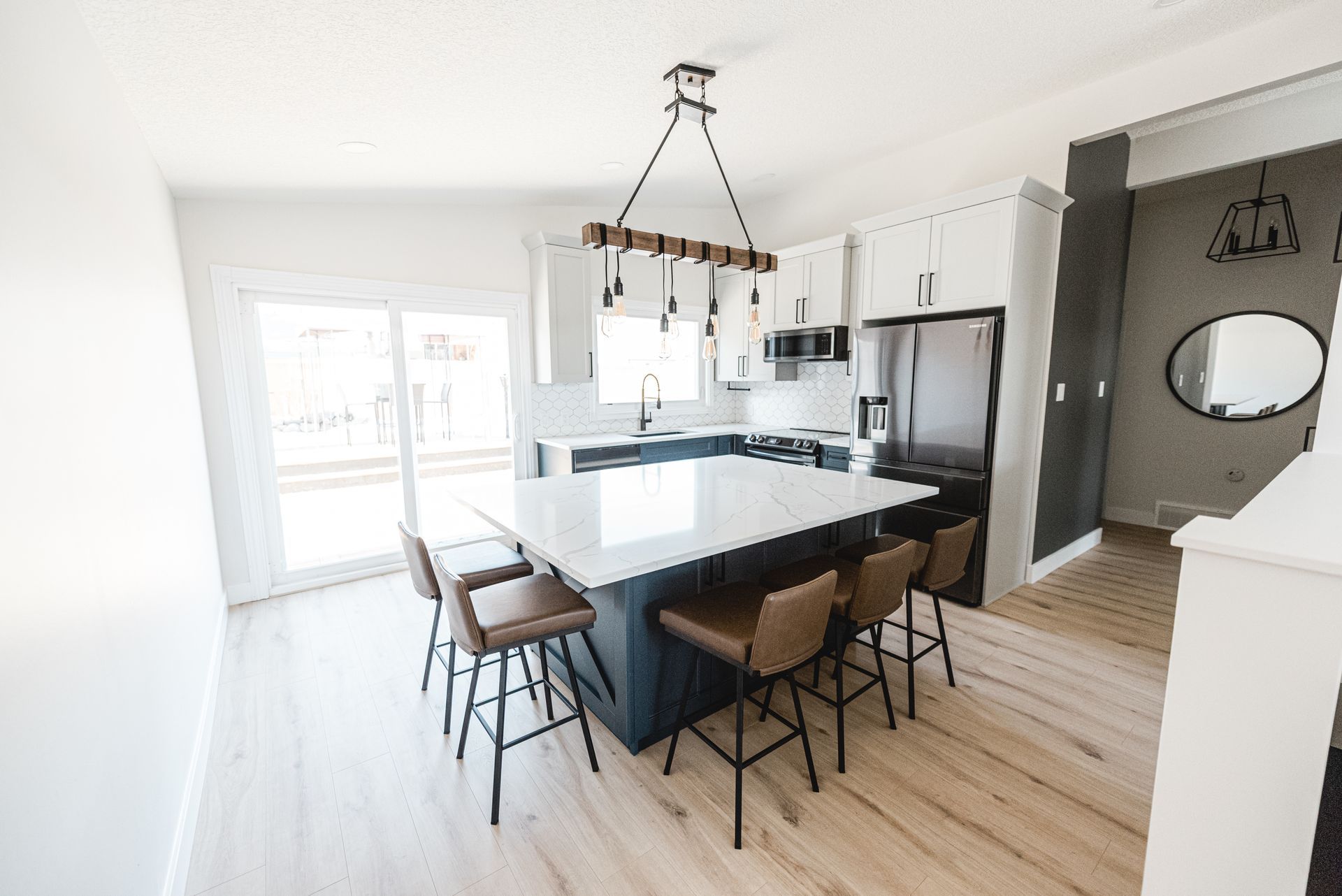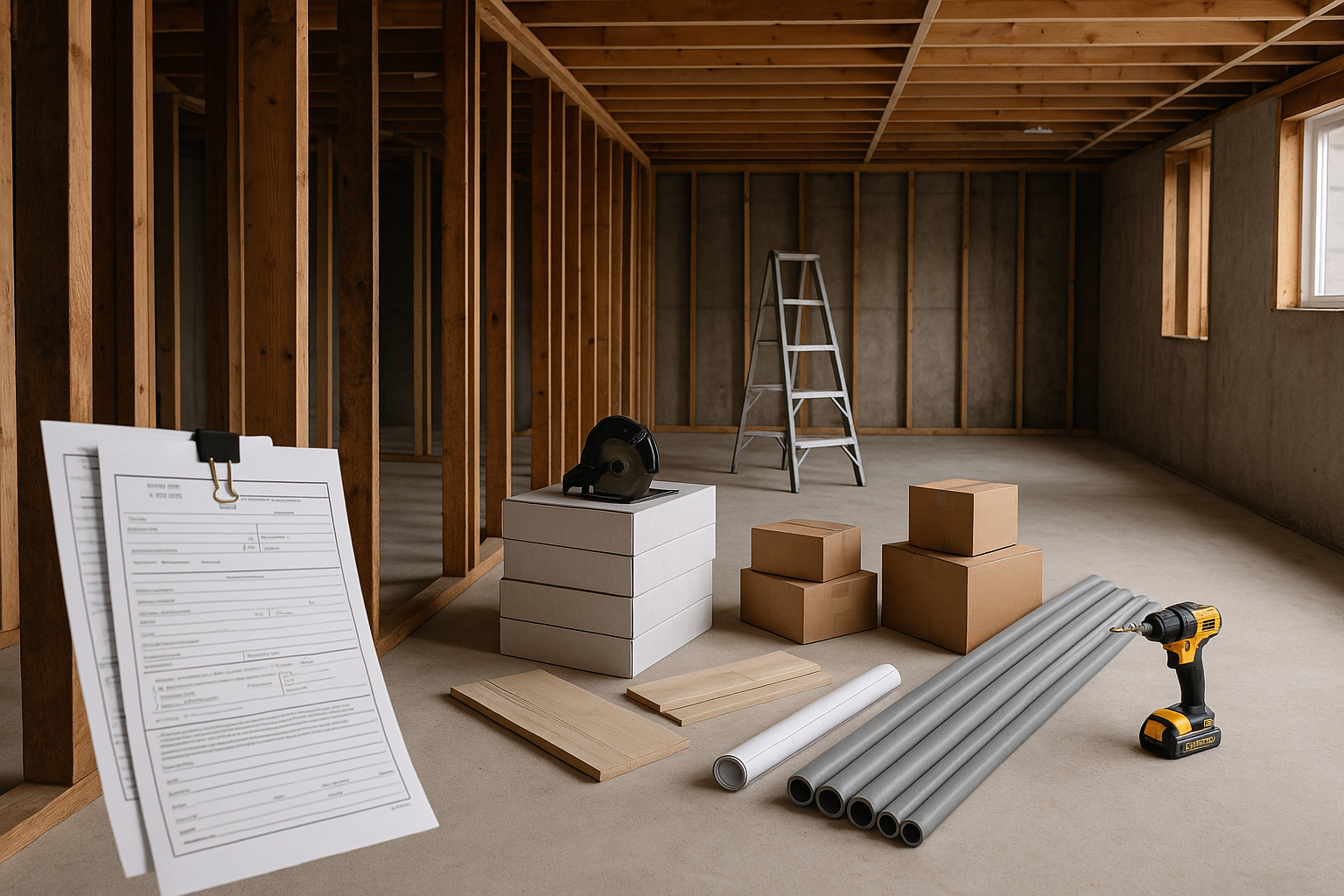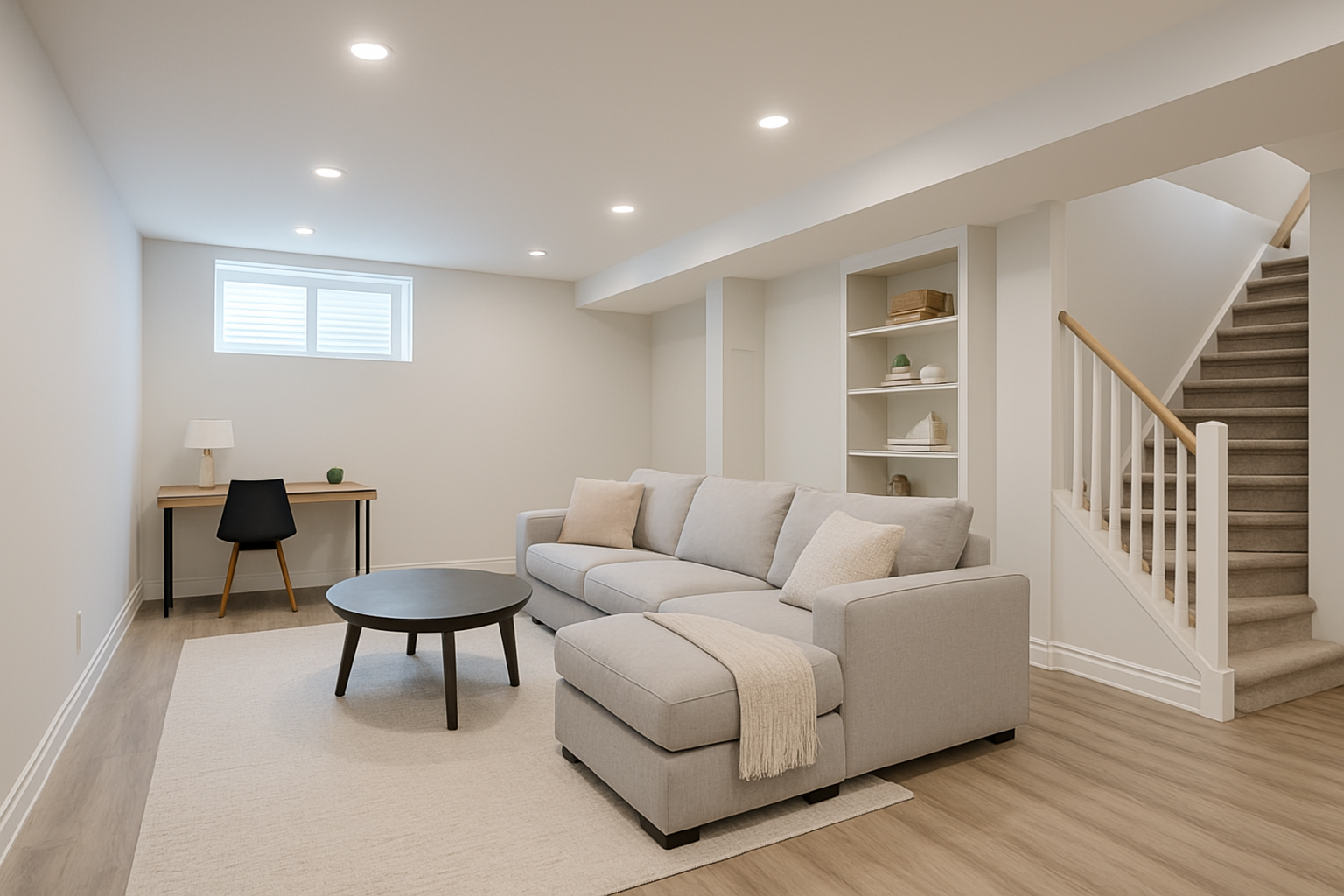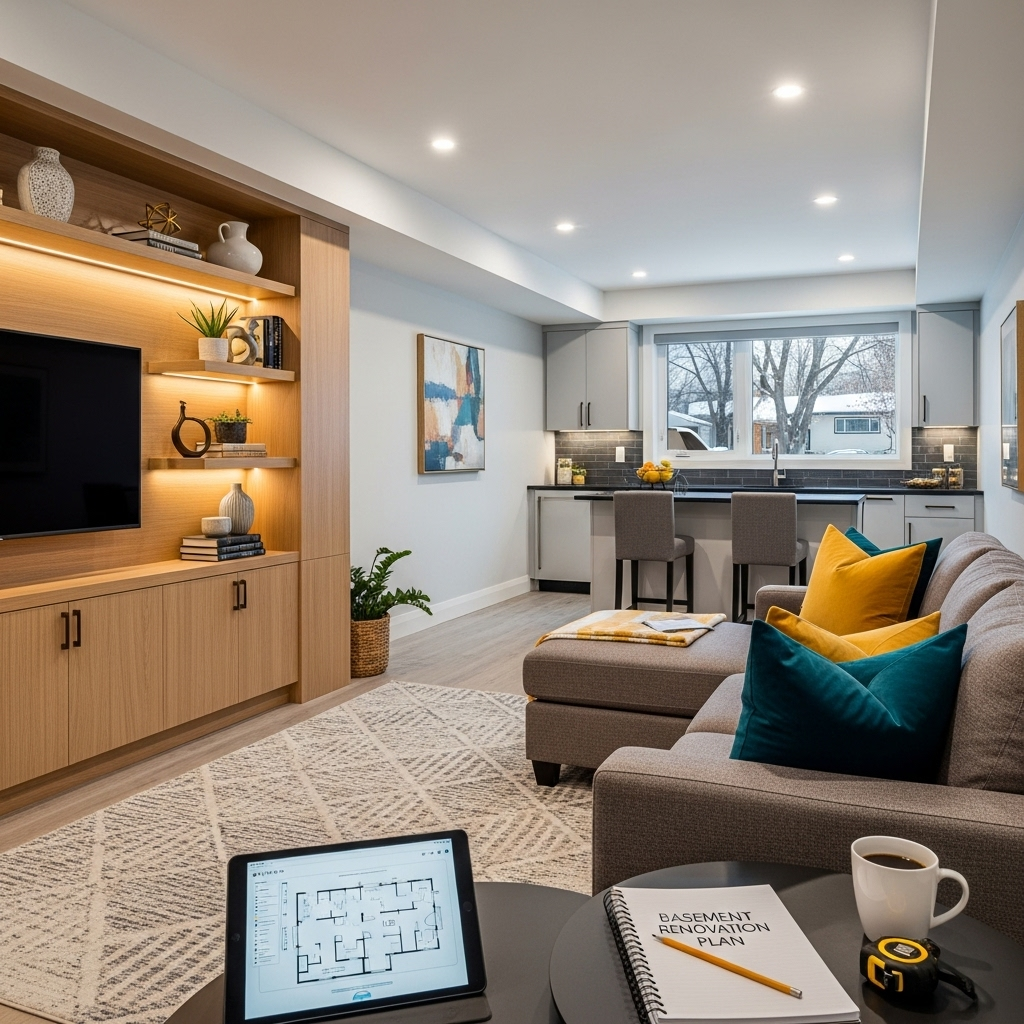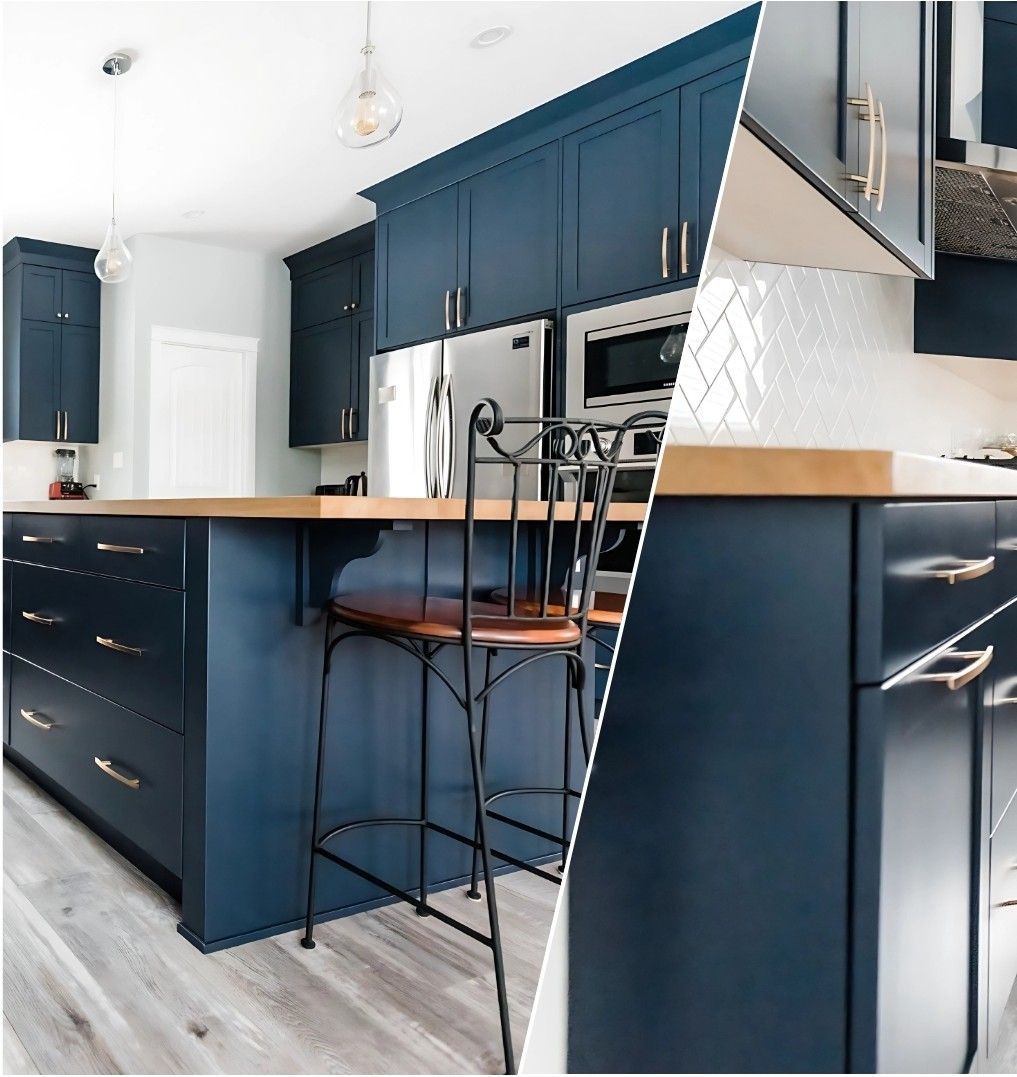5 Crucial Questions Most Homeowners Overlook When Hiring a Contractor
This is a subtitle for your new post
You've finally decided to tackle that home project, but finding the right contractor can feel like searching for a needle in a haystack. With so many options, how do you choose the one who'll deliver what you envision? Knowing how to vet a contractor isn't just about checking references—it's about asking the right questions that most homeowners skip. In this post, you'll uncover the five crucial questions that can make all the difference. Ready to hire with confidence? Read on to ensure your project starts on the right foot. For more information on finding the right renovator for your project, check out the Canadian Home Builders' Association guide.
Selecting the right contractor is a critical step in ensuring your home project's success. This section explores the significance of thorough vetting and provides practical tips for homeowners.
How to Vet a Contractor
Vetting a contractor involves a systematic approach to evaluate their qualifications, experience, and reliability. Start by researching their background and verifying their credentials.
Request references from past clients and take the time to contact them. Ask about the contractor's work quality, timeliness, and communication skills.
Check online reviews and ratings on reputable platforms. While a few negative reviews are normal, pay attention to patterns of complaints or praise.
Verify the contractor's licensing and insurance status. You can use the Service Alberta Business Search to confirm their credentials.
Evaluating a Contractor
Thoroughly evaluating your contractor options is crucial to making the right choice. Start by defining your project requirements and budget.
Ensure you confirm their license status, insurance coverage, and bonding details. Discuss their experience with similar projects and expected timelines.
Talk about their relationships with subcontractors, warranty options, and payment conditions. Pay attention to their communication style and responsiveness.
Review their work portfolio and request client references. Consider Nuvo Construction's testimonials and Google Reviews to understand what to look for in contractor evaluations.
Contractor Hiring Tips
When hiring a contractor, always get multiple bids for your project. This allows you to compare prices, timelines, and proposed solutions.
Don't automatically choose the lowest bid. Consider the value offered, including quality of materials and workmanship.
Ask about the contractor's current workload. Ensure they have the capacity to take on your project without delays.
Request a detailed contract that outlines all aspects of the work, including materials, labor, timeline, and payment schedule. Review it carefully before signing.
Consider the contractor's communication style and responsiveness during the bidding process. This often indicates how they'll interact during the project.
Essential Questions to Ask
Asking the right questions can reveal crucial information about a contractor's capabilities and reliability. This section outlines key inquiries every homeowner should make.
Questions to Ask a Contractor
When interviewing contractors, prepare a list of targeted questions to gather essential information. Start by asking about their experience with projects similar to yours.
Inquire about their licensing, insurance, and bonding status. Request proof of these credentials and verify them independently.
Ask about their typical project timeline and how they handle unexpected delays or issues. This can give you insight into their problem-solving skills.
Discuss their payment terms and schedule. Be wary of contractors who demand large upfront payments or cash-only deals.
Don't forget to ask about warranties on their work and the materials they use. A reputable contractor should stand behind their craftsmanship.
Ensuring Contractor Reliability
Reliability is a key factor in choosing a contractor. Start by checking their track record of completing projects on time and within budget.
Ask about their policy for addressing mistakes or issues that arise during the project. A reliable contractor will have a clear process for resolving problems.
Inquire about their communication practices. How often will they update you on progress? What's the best way to reach them with questions or concerns?
Consider their stability as a business. How long have they been operating? Do they have a physical office or showroom you can visit?
Look for contractors who are members of professional associations, as this often indicates a commitment to industry standards and ongoing education.
Assessing Contractor Experience
Experience is a valuable asset in the construction industry. Ask potential contractors about their years in business and the types of projects they specialize in.
Request examples of completed projects similar to yours. If possible, arrange to see some of their work in person.
Inquire about the specific team members who will be working on your project. What are their qualifications and experience levels?
Ask about any challenges they've faced on similar projects and how they overcame them. This can give you insight into their problem-solving abilities.
Don't hesitate to ask for references from clients with projects comparable to yours. Nuvo Construction's about page can give you an idea of what to look for in a contractor's experience.
Evaluating Contractor Proposals
Carefully reviewing and comparing contractor proposals is crucial for making an informed decision. This section guides you through the evaluation process.
Understanding Cost Estimates
Cost estimates should be detailed and transparent. Ask contractors to break down their estimates into a detailed scope of work and specifications for the products they plan to use.
Be wary of estimates that seem unusually low or high compared to others. Ask for clarification on any significant discrepancies.
Inquire about potential additional costs or factors that could increase the final price. A good contractor will be upfront about possible contingencies.
Understand the payment schedule proposed in the estimate. It should align with project milestones and not require large upfront payments.
Remember that the cheapest option isn't always the best value. Consider the quality of materials and workmanship offered in relation to the price.
Comparing Project Timelines
Project timelines can vary significantly between contractors. Ask contractors about typical project timelines and inquire how soon after signing the contract a detailed schedule would be provided.
Inquire about factors that could affect the timeline, such as material availability or weather conditions. How do they plan to mitigate potential delays?
Ask about their policy for updating you on progress and any changes to the timeline. Clear communication is essential for staying on schedule.
Consider the contractor's current workload. Can they realistically start and complete your project within the proposed timeframe?
Remember that the fastest timeline isn't always the best choice. Quality work takes time, and rushing can lead to mistakes or cut corners.
Reviewing Past Projects
Examining a contractor's past projects can provide valuable insights into their capabilities and style. Ask for a portfolio of completed work, especially projects similar to yours.
If possible, arrange to visit some of their completed job sites. This allows you to see the quality of their work firsthand and potentially speak with previous clients.
Pay attention to the details in their past projects. Does the workmanship meet your standards? Are there any recurring issues or particularly impressive features?
Ask about any challenges they faced in these projects and how they were resolved. This can give you an idea of their problem-solving skills and adaptability.
Don't forget to check online reviews and ratings for these past projects. Websites like Service Alberta can provide valuable information about a contractor's history.
Building Trust and Communication
Establishing a strong, trust-based relationship with your contractor is essential for project success. This section explores strategies for effective communication and collaboration.
Establishing Clear Expectations
Setting clear expectations from the outset is crucial for a smooth project. Begin by clearly articulating your vision, budget, and timeline to potential contractors.
Ask contractors to explain their process and what they expect from you as the homeowner. This includes access to the property, decision-making timelines, and payment schedules.
Discuss how changes to the project scope will be handled. A good contractor will have a clear change order process to document and price any modifications.
Agree on a communication plan, including frequency of updates and preferred methods of contact. This helps prevent misunderstandings and keeps you informed.
Consider creating a shared document or project management tool to track progress, decisions, and outstanding items. This can serve as a central reference point for both parties.
Maintaining Open Dialogue
Open and honest communication is key to a successful project. Establish regular check-ins with your contractor to discuss progress and address any concerns.
Encourage your contractor to be proactive in communicating potential issues or delays. The earlier problems are identified, the easier they are to resolve.
Be responsive when your contractor needs decisions or information from you. Delays on your end can impact the overall project timeline.
Keep a record of all important conversations and decisions. This can be invaluable if disagreements arise later in the project.
Remember that effective communication goes both ways. Be open to hearing your contractor's professional opinions and suggestions.
Handling Disputes Effectively
Despite best efforts, disputes can sometimes arise during a project. Start by reviewing your contract to understand each party's rights and responsibilities.
Address issues promptly and directly with your contractor. Many problems can be resolved through open, respectful dialogue.
If you can't reach an agreement, consider involving a neutral third party, such as a mediator. This can help facilitate a resolution without resorting to legal action.
Document all aspects of the dispute, including conversations, emails, and any relevant photos or evidence. This can be crucial if the issue escalates.
As a last resort, familiarize yourself with local consumer protection laws and dispute resolution processes. The City of Edmonton's renovation guide provides useful information on local regulations and resources.
Making the Final Decision
Choosing the right contractor is a critical decision that impacts the success of your project. This section guides you through the final steps of the selection process.
Vetting Contractors Effectively
Effective vetting combines thorough research with careful analysis. Review all the information you've gathered about each contractor, including estimates, timelines, and references.
Create a comparison matrix to evaluate contractors side-by-side on key factors such as experience, price, timeline, and communication style.
Trust your instincts. If something feels off about a contractor, even if you can't pinpoint why, it's worth considering other options.
Don't rush the decision. Take the time to carefully consider all aspects before making your choice.
Remember that the best contractor for you balances quality, value, and compatibility with your specific needs and preferences.
Evaluating Long-Term Benefits
Consider the long-term implications of your choice. A slightly higher upfront cost might result in better durability and fewer future repairs.
Think about the warranty offered by each contractor. A longer, more comprehensive warranty can provide peace of mind and potential cost savings down the line.
Consider the contractor's reputation and stability. A well-established company is more likely to be around to honor warranties and address any future issues.
Evaluate the potential impact on your home's value. Quality workmanship and materials can increase your property's worth, especially for major renovations.
Don't forget to factor in the stress and disruption of the renovation process. A contractor who can minimize these factors provides significant long-term benefits.
Scheduling Your Consultation
Once you've made your decision, it's time to schedule a detailed consultation with your chosen contractor. Prepare a list of any remaining questions or concerns.
Use this meeting to finalize project details, including materials, colors, and specific design elements. The more you clarify now, the smoother the project will run.
Discuss the next steps in the process, including contract signing, permit acquisition, and project start date. Ensure you're clear on what's needed from you.
Take this opportunity to establish a strong working relationship with your contractor. Clear, open communication from the start sets the tone for the entire project.
Ready to move forward with your project? Contact Nuvo Construction to schedule your consultation and start turning your vision into reality.

